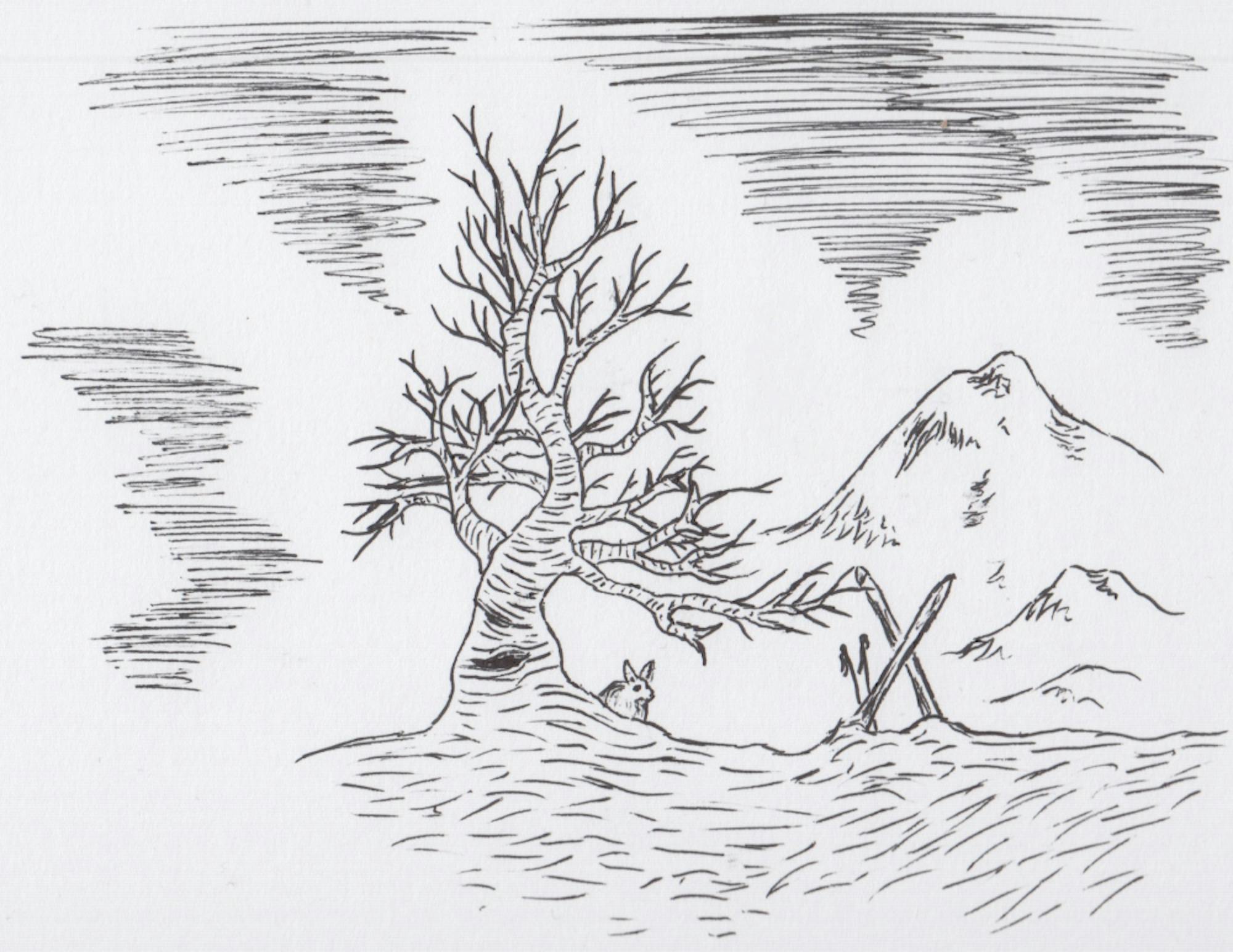I didn’t expect to be on campus on Dec. 30, 2016. Instead of trudging up Mount Cube, I trudged up the stairs to my third floor dorm, kicked off my overboots and microspikes, dropped my frame pack and, well, cried.
It wasn’t the first time that day. Just hours before, I had been one of five Dartmouth students bold (insane?) enough to embark on the Frozen Fifty, an interim backpacking trip that begins at Robinson Hall and ends at Moosilauke Lodge. Fifty miles in the snow? Even my close friends were skeptical. I didn’t care about their head tilts and jokes. I had no qualms about signing up — much to my mother’s dismay, being outdoorsy or “crunchy” is one of my hats. I’d completed trips of similar intensity in the past and looked forward to adding another to the docket. Winter term would start on a high note.
To be sure, the opportunity cost of the Frozen Fifty was considerable. I missed a vacation with family and New Year’s Eve with friends in Chicago, Illinois. That second cost was especially bittersweet. Because most of my friends from home are on the semester system, giving up one of two full weeks with them was no easy trade.
But I had made a commitment. Furthermore, I was relieved to be going back to a place that felt like home. By the evening of Dec. 26, 2016, I was showering in a dorm bathroom.
I had left before the Christmas tree on the Green did.
The first two days of the hike, although cold (shocker!) were beautiful. Waterlogged bark stained almost black contrasted with blindingly white snow. My only regret is that I spent too much time trying not to slip that I didn’t look up enough.
By the end of the second day, my left hip flexor was annoying me to the point of stopping for an Advil break. Obviously, hiking in the snow with packs would be painful. I stretched, took more Advil and slept well. The next morning, however, I winced as I lifted my left leg to 90 degrees. Two miles into that day’s hike, my vision was blurred by tears.
“I don’t think I can do this.”
It wasn’t the first time self-doubt infiltrated an outdoors trip. I rationalized my situation: the Frozen Fifty was not meant to be cushy — of course there would be pain; backpacking isn’t always fun — of course walking fifty miles is a shock to the body. Above all, I’m not a quitter.
As the five of us trudged along a flat gravel road, I inched toward the back of the pack. Our trip leader, knowing my situation, checked in with me. I answered his questions honestly; the pain had sapped any façade of optimism. Now, every other step was a searing flash.
We weren’t even at the base of that day’s mountain.
The cheerleader in the back of my mind fell silent. I thought of the implications of a hip injury on campus. The last thing I needed this winter was an icy fall on the Green as I hobbled to and from class on crutches. This wasn’t an issue of mental strength; this was an issue of physical health.
Of course, everybody was supportive. What was there to say? Rationally, I knew that I was making the right decision: if I couldn’t walk, I definitely couldn’t summit mountains. Yet, I was horribly embarrassed. I had let myself down. I hadn’t crossed the finish line. Some might celebrate the 25 miles I had already completed — if someone else was in my position, I would do the same for them. But in my mind, the situation was simple. I had set a goal and failed to reach it.
I failed.
It seems that when most Dartmouth students fail, they fail safely. As a friend joked, failing is not scoring a second round interview at Goldman Sachs and ending up with a gig at Deutsche Bank.
Failing is bombing the midterm and earning a B-plus at the term’s end.
The opposite of failure is, of course, success. The infatuation with and ubiquity of success at Dartmouth is completely logical: while diverse in background, majors and interests, all Dartmouth students were admitted based on some caliber of achievement in high school. Getting into Dartmouth, in and of itself, is a metric of success. Additionally, I’m of the mindset that others’ success can motivate oneself. However, it is possible to value success without stigmatizing failure.
I worry that at Dartmouth and at its peer universities, the normalization of success stigmatizes failure. Students operate under the false assumption that true failure is uncommon, rather than an inherent truth. In trying, the chance of failure is always present. Many initiatives, both at and outside Dartmouth, have encouraged the proclamation of failure to mitigate feelings of shame. For example, groups on campus might post their letdowns to a public “Board of Failure.” Although laudable in theory, such initiatives can be insincere, as they can tidy up natural disappointment and frustration before these natural emotions can be felt. Rather, failure should be taken for what it is and be normalized through continued dialogue, highlighting its frequency and banality.
To those who need to hear it: not only do the rest of Dartmouth students fail, but it’s okay when you do, too.
Although it was cathartic to normalize my own failure, it took a few rounds of tears for the shame to be dulled.
Two hours after my arrival on campus, I sunk into a worn armchair in the corner of Left Bank Books with a collection of old letters. My early return to Hanover was not ideal, but it was, in the purest sense of the word, okay.


